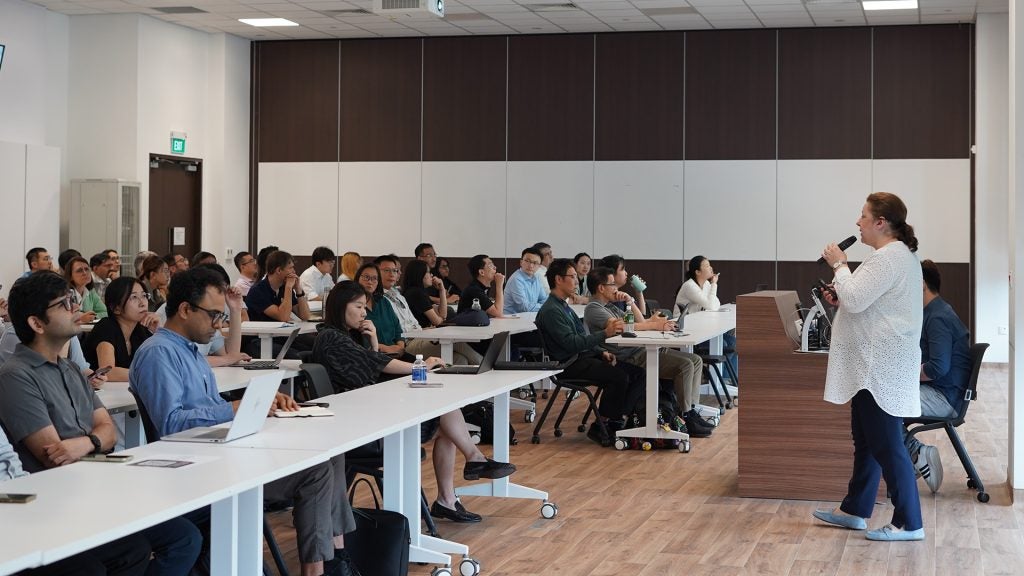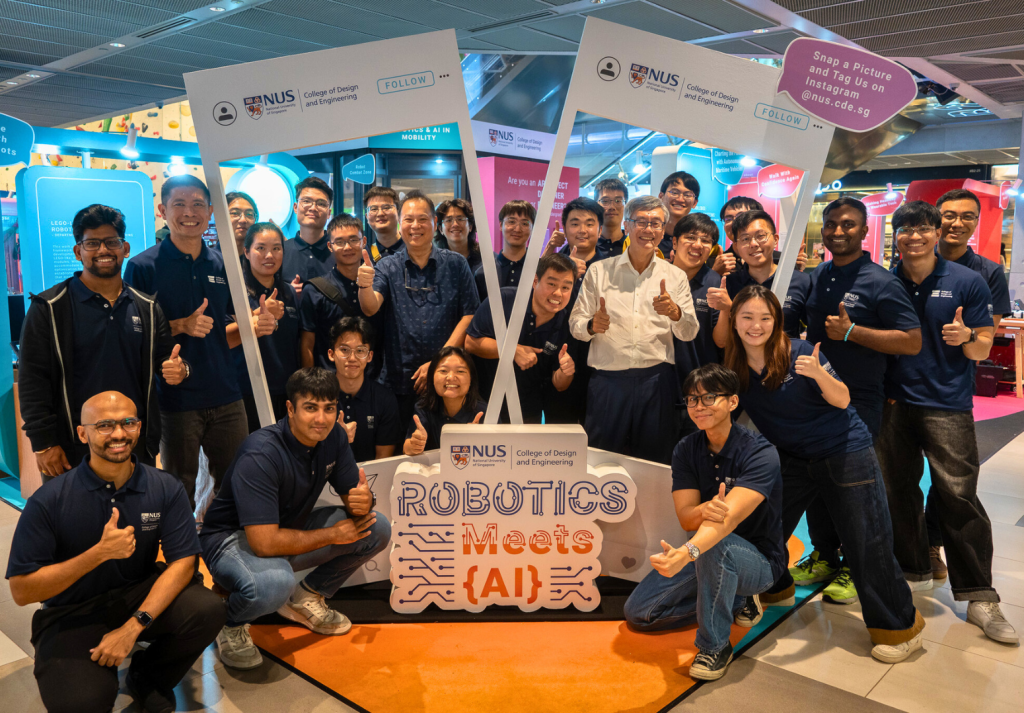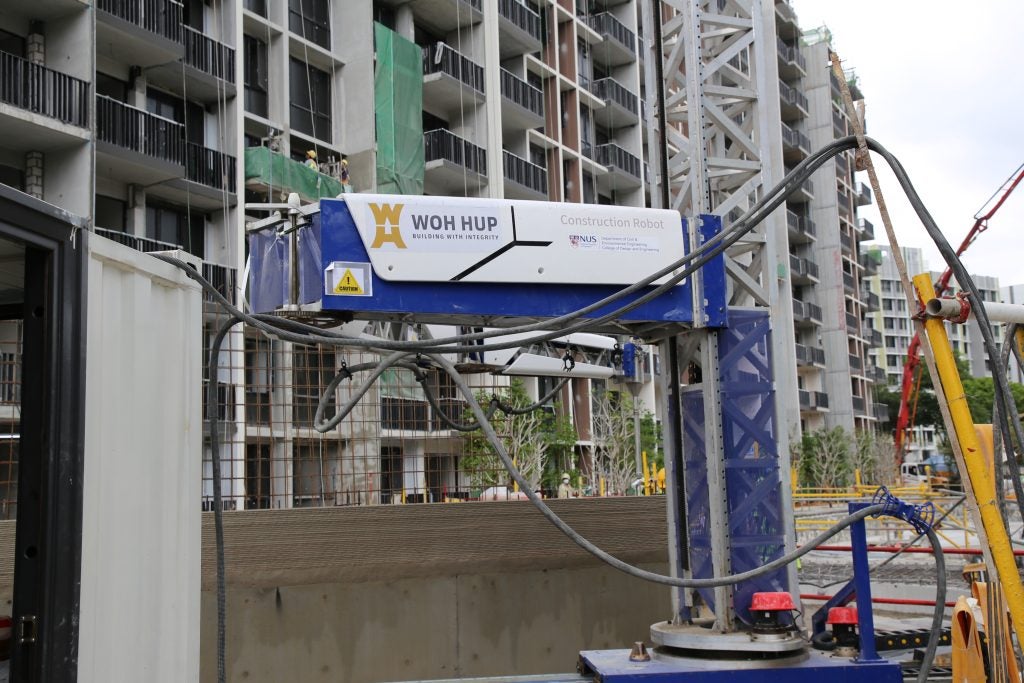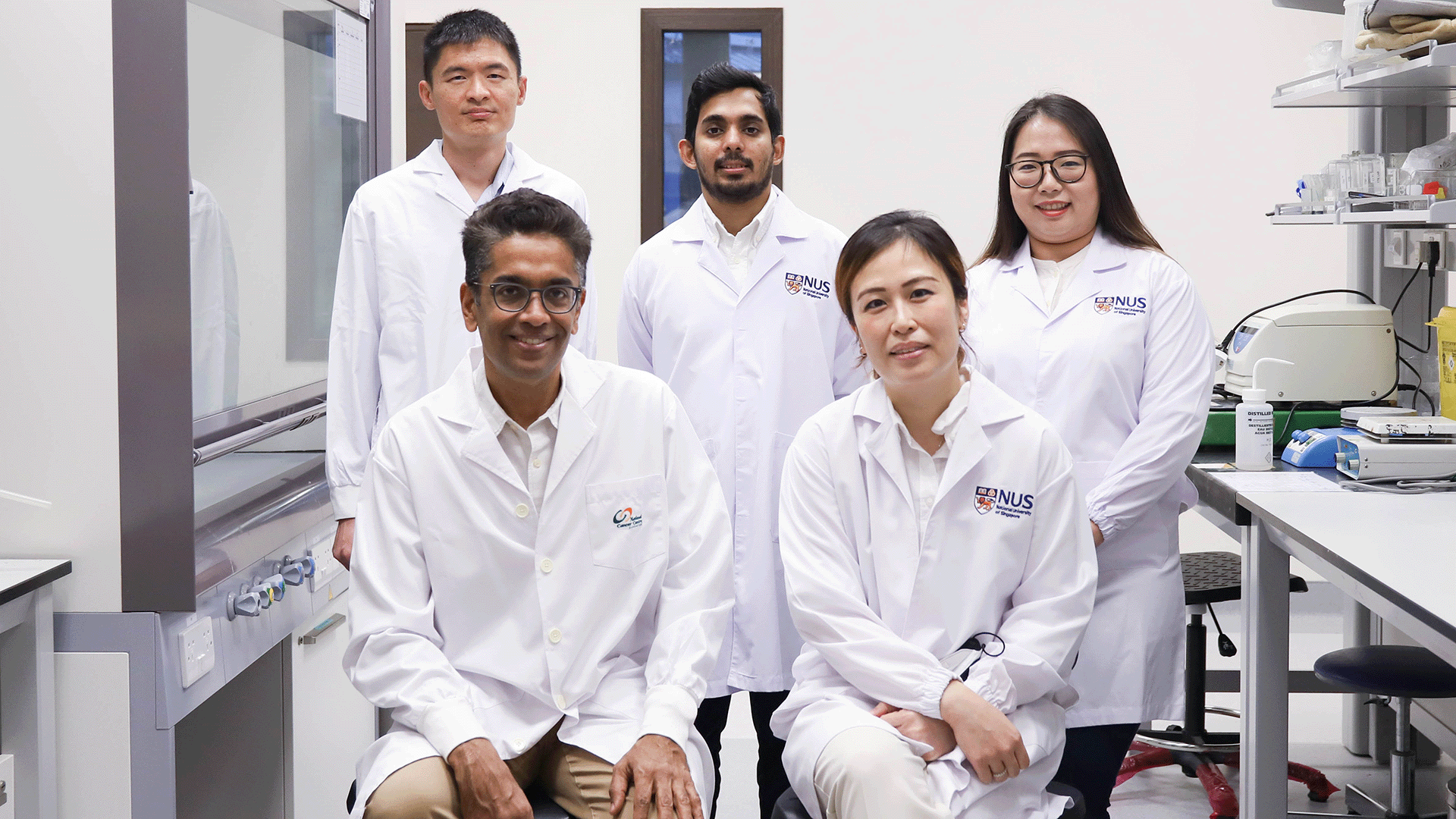
A novel platform that allows tumours to be grown and better preserved outside of the body could herald a breakthrough in personalised oncology, significantly reducing the time needed to determine the efficacy of anti-cancer drugs for individual cancer patients.
The first-of-its-kind technology - which uses a tissue-like, bioengineered hydrogel - was developed by a research team co-led by Assistant Professor Eliza Fong (Biomedical Engineering and the N.1 Institute for Health).
The team, which includes scientists from the National Cancer Centre Singapore (NCCS), published their study in the journal Biomaterials on 20 January 2024.
Complex tissues
Tumours are highly complex tissues comprising not just the rapidly proliferating cancer cells, but also a dynamic array of supporting cells such as immune cells, the nature and composition of which can vary widely within each tumour. Hence, two patients with the same cancer may respond differently to the same drug or drug combination.
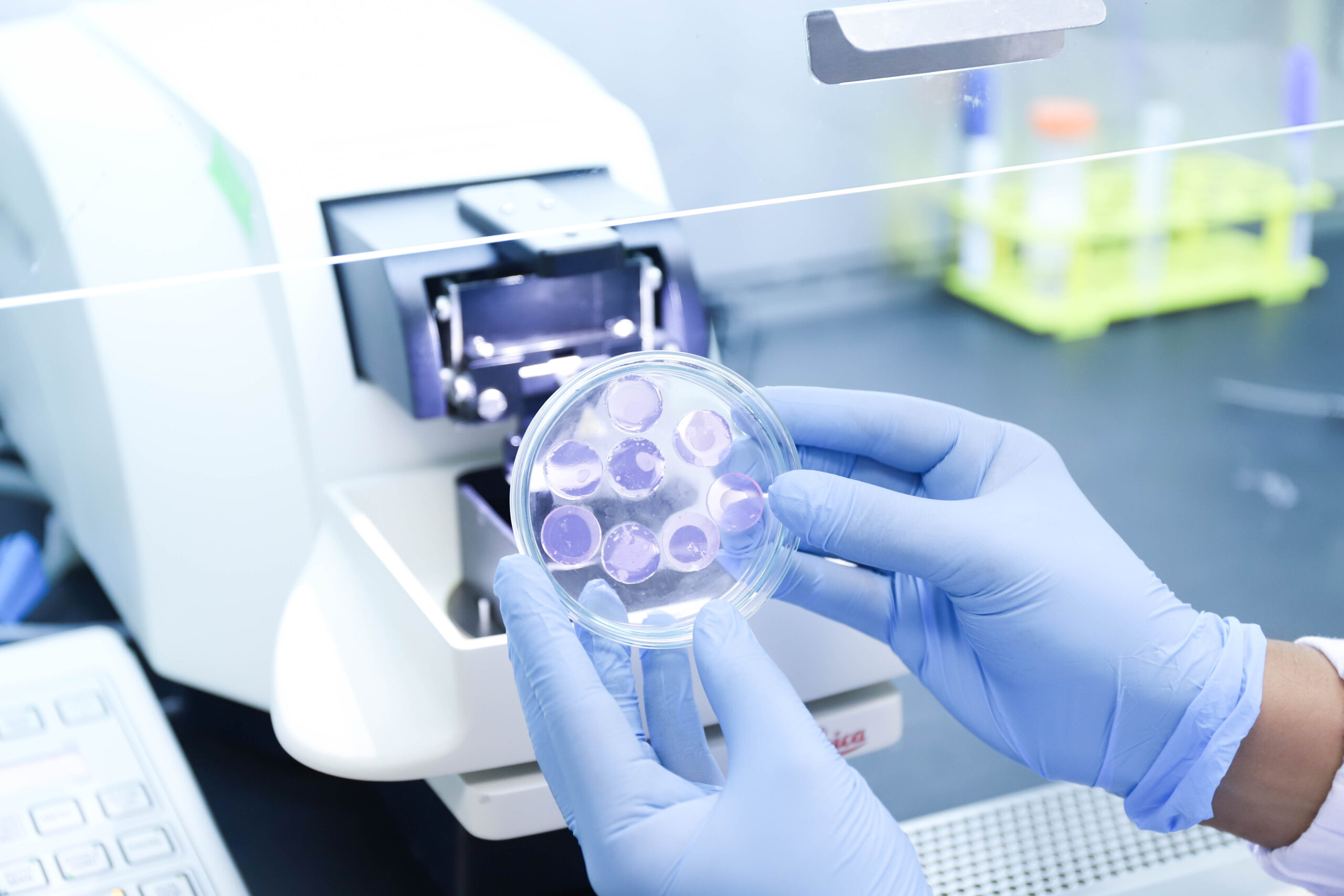
“The various cells in a tumour can be likened to the different pieces in a chess set,” said Asst Prof Fong. “The king, akin to cancer cells, is protected and supported by other pieces or cell types present in the tumour. You can think of these supporting cells as the pawns, rooks, bishops and knights. Many drugs now target these supporting cells to eliminate cancer cells.”
The breakthrough in the study, she said, is the use of the bioengineered hydrogel which can keep the patient’s tumour alive for up to 10 days, even after it has been removed from the body.
“Employing traditional methods, it is only possible to maintain tumours for one to two days outside the body,” said Asst Prof Fong.
“Our new bioengineering approach opens up unprecedented opportunities for the efficient and accurate testing of anti-cancer drugs on the patient’s tumour, including immunotherapies, for individual cancer patients. These tumour fragments can now serve as true ‘patient avatars’ for personalised oncology.”
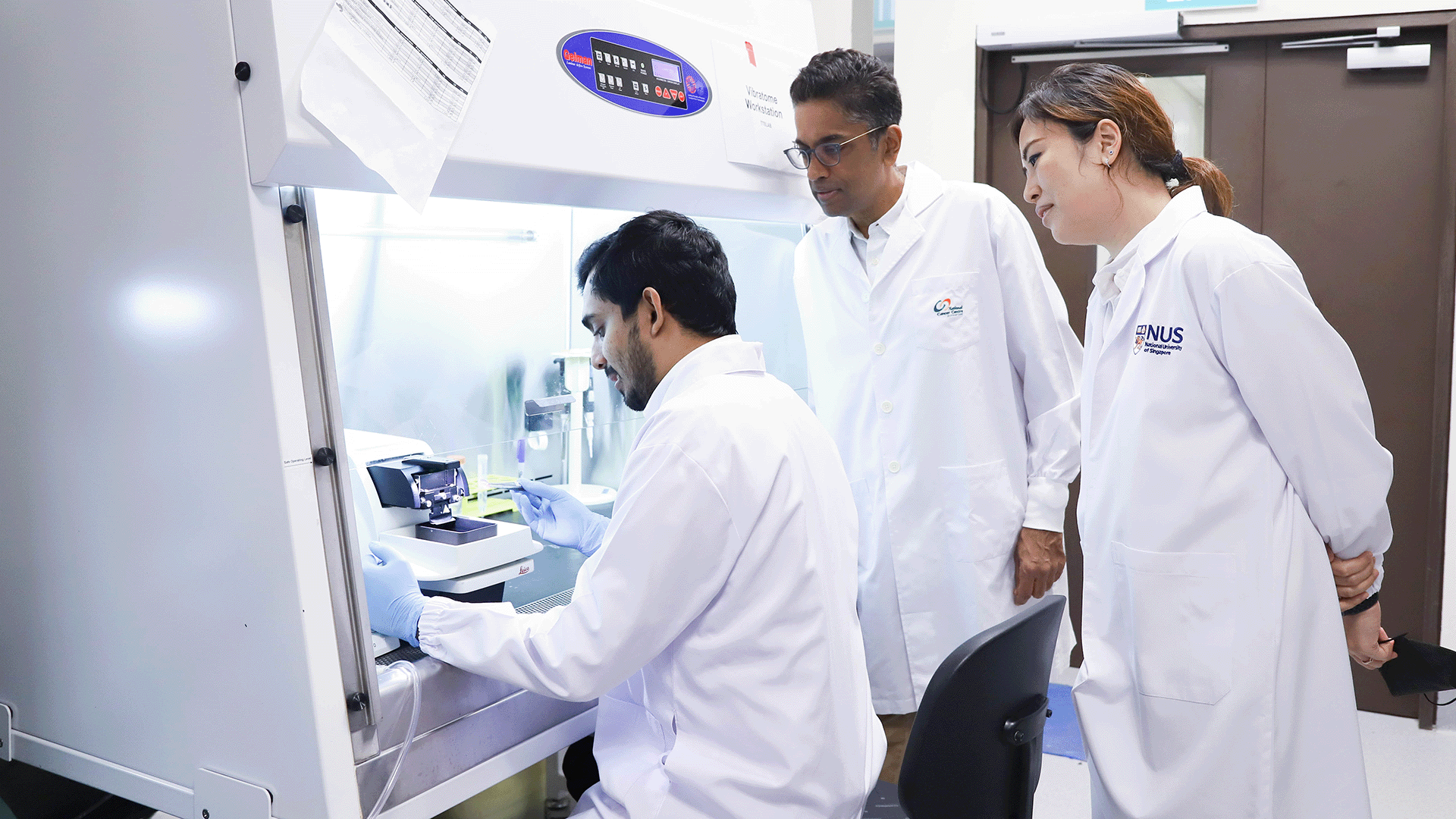
The study revealed several key findings:
- First, tumour fragments cultured in the platform were better preserved in terms of viability and morphology as compared to standard methods over time. This ability to keep tumour fragments alive for up to 10 days allows for more drug testing and screening to be performed.
- Second, the researchers were able to demonstrate that all of the various “chess pieces” in the original tumour – including cancer cells, immune cells and fibroblasts – were also present in the cultured tumour fragments, thus allowing these ‘patient avatars’ to better depict the effects of drugs on cancer cells.
- The study also showed the utility of these ‘patient avatars’ for testing immune checkpoint inhibitors, a type of immunotherapy, in a co-clinical trial, accurately predicting the drug response of head and neck cancer patients from which the tumours were resected and cultured. As a result, the researchers say, the platform could help to guide clinicians in selecting patients to prescribe these immune checkpoint inhibitors, while reducing the possibility of giving the drug to patients whose tumours are least likely to respond.
Treatment strategies
By preserving the tumour microenvironment and maintaining the heterogeneity of the cells within the patient’s tumour, the researchers say the platform offers a more accurate representation of the complex interactions between the different cell types in the tumour.
This enables clinicians to study the effects of drugs and therapies in a more realistic setting, potentially leading to more effective treatment strategies.
Professor Gopal Iyer, who is a Clinician Scientist and Head of the Department of Head and Neck Surgery at the National Cancer Centre Singapore and co-lead of the study, said: “As an oncologist and scientist, my goal is to treat patients better and that means giving the right drug to the right patient at the right time, and in the right combination… This platform allows us to test drugs in a more realistic setting with the goal of improving their efficacy. With this, we hope to alleviate some of the uncertainty and anxiety that can be a part of a patient’s experience when they undergo cancer treatment.”
The study could have significant implications for personalised medicine and the development of targeted therapies. By studying the response of individual tumours to specific treatments, researchers can identify biomarkers and predictive factors that can guide treatment decisions.
The team is now working on a larger-scale clinical trial and aim to build a local repository of tumours for Singapore and the region that can be used for more comprehensive drug testing and pre-screening.
“Cancer treatment can be a challenging and uncertain journey,” said Assistant Professor Fong.
“But with innovations in biomaterials and personalised oncology and strong collaborations with clinicians, we can accelerate the time taken to test and optimise drugs for individual patients in the Singapore context and beyond.”



